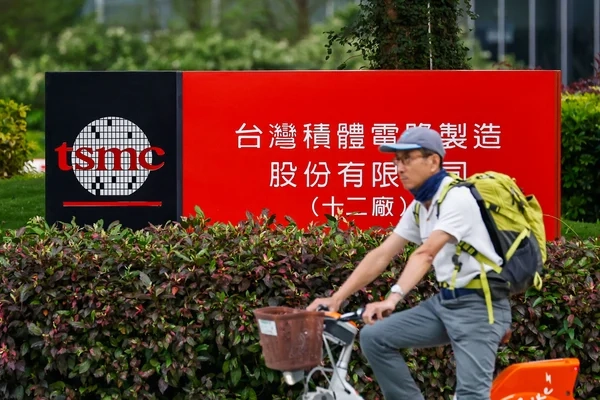Emerging markets have never been so concentrated. And, like Wall Street, their success is converging around a single technology: artificial intelligence.
The benchmark MSCI Emerging Markets index , which captures large and mid cap representation across 24 countries, has become increasingly top-heavy, its performance tied to a single company. Taiwan Semiconductor Manufacturing Company (TSMC), the worlds largest semiconductor foundry, accounts for 10.2% of its weight. That's the most exposure to one entity in the index's 14 year history.
So far this year, TSMC accounts for about 40% of the index's returns. By comparison, Nvidia contributed 22% to the S&P 500's overall return last year. An analysis of 384 EM funds in 2023 found that two-thirds had TSMC as their largest holding, far exceeding records.
TSMC fabricates advanced chips for companies such as Nvidia, Apple and Broadcom. The U.S. buys 92% of its advanced AI chips from the Taiwanese behemoth, according to data from Boston Consulting Group cited by JPMorgan Chase. Soaring demand for these semiconductors have led shares in TSMC to triple since 2023.
TSMCs fabs are arguably the most important real estate in the world, Chris Miller wrote in his 2022 book Chip War.
Concentration fears have largely pertained to supply chains as Big Tech's AI success becomes contingent on a single company. "The world has become too dependent on Taiwan for semiconductors," former Intel CEO Pat Gelsinger said in 2022.
But emerging markets are also riding on the continued success of one company. What's more, its outsized contribution to returns also complicates the role emerging market funds have historically played for investors: to be a hedge against the U.S. stock market.
Yet TSMCs success has become increasingly moored to the U.S. chip industry after Washington ordered it to halt orders to Chinese companies. The entwined health of the S&P 500 and TSMC could threaten this inverse relationship, should further advances in Chinese AI cause another Big Tech sell-off, such as when DeepSeek-R1 wiped almost $1 trillion of the S&P 500 in a matter of days back in January. The close bond shared by American tech and TSMC could threaten the reputation of emerging market funds as diversifiers.
Moreover, even if China does not usurp the U.S. in the AI arms race, the stakes are still high. That's because the MSCI EM indexs exposure runs deeper than just TSMC. The three next largest constituents are Tencent Holdings, Alibaba, and South Koreas Samsung, each of whom have heavily invested in AI. Together these companies make up one-fifth of the indexs weight. Thus, Wall Street's concerns over the financial fall-out that would follow if the technology fails to deliver the returns that investors have hoped fordubbed the "AI bubble"also applies to these funds.
Last year, "virtually all of the returns in the MSCI EM Index could be traced to just five stocks, led by TSMC, which on its own contributed nearly half of the indexs return," Harding Loevner analysts said in a report. "Every sector except Information Technology fell."
And the drawbacks of this concentration extend beyond bubble concerns, said Malcolm Dorson, Global X's senior portfolio manager and head of emerging markets strategy. He noted that due to mega-cap stocks dominating emerging market funds, investors are frustrated that these indexes offer less than 1% exposure to some of the best performing countries in the world these past few years, such as Argentina, Colombia, Greece.
Still, investors have more options to redistribute exposure than they did in the past, he added, with a choice of active, passive, regional, and country-specific funds. In todays fragmented and evolving global landscape," Dolson said, "how you invest in [emerging markets] matters just as much as where."
h2]:text-3xl pb-8>




